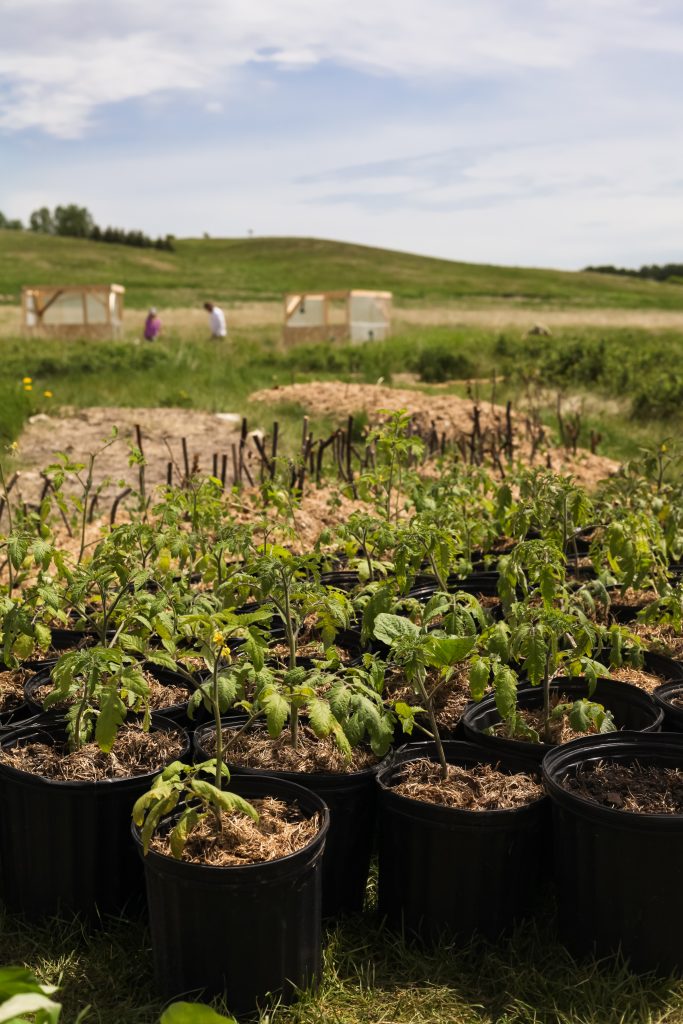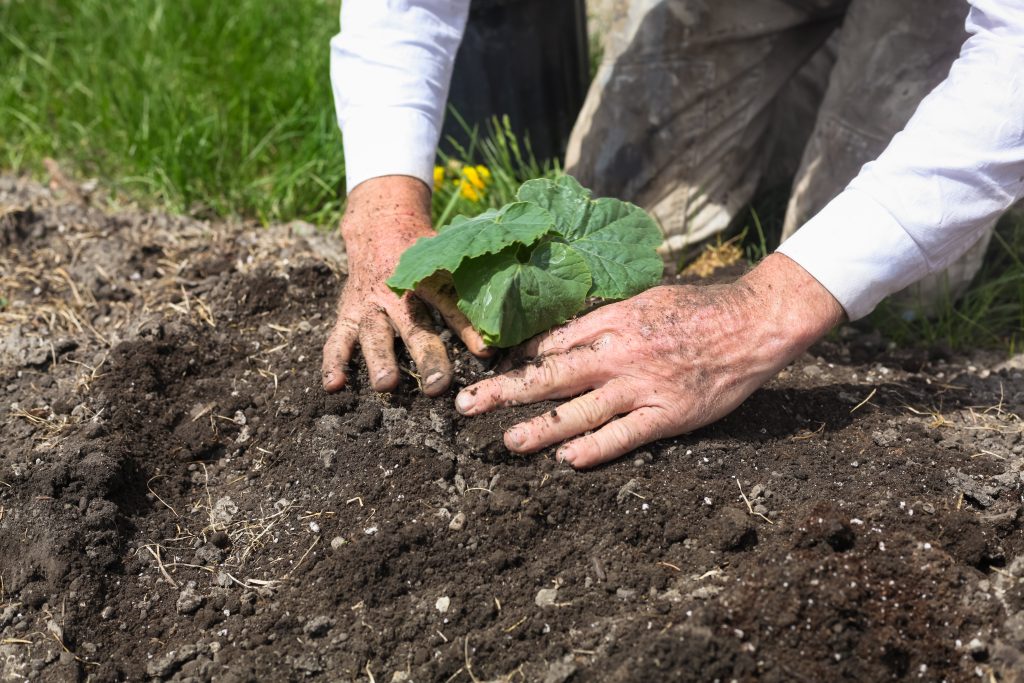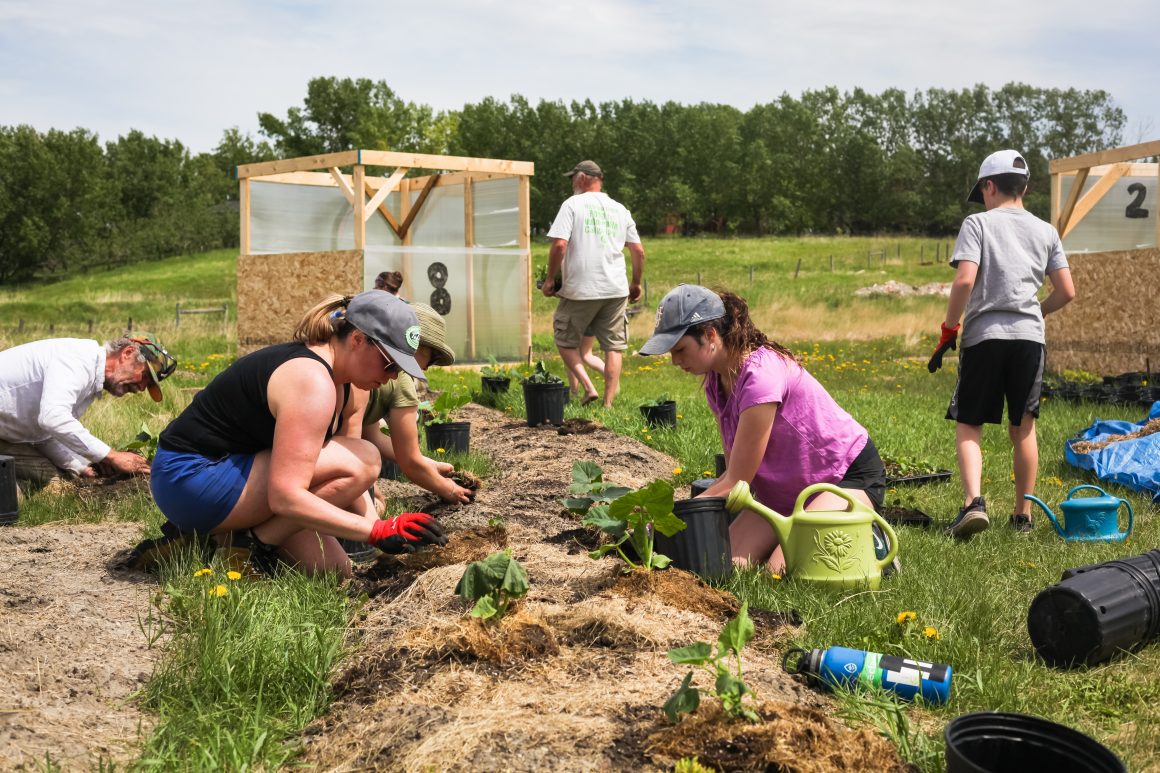
Grow Calgary strives to support food access during COVID
By Nikayla Goddard, June 18 2020—
Events in the past few months have created an unfortunate perfect storm for many, between a slow economy and COVID-19 and the financial hardships that came as a result of it. The Calgary Food Bank reports that 11 per cent of Albertans experience food insecurity and that in Fall 2019 alone the Calgary Food Bank affected 192,391 lives, not even considering how many more Calgarians may turn to food banks as the COVID crisis continues.
Local food access agencies and food banks are able to provide fresh produce to their users thanks to not-for-profits like Grow Calgary, a volunteer-run community urban farm situated near Balzac, that donates 100 per cent of their locally grown produce to these valued agencies specifically. Over the past seven years, Grow Calgary has donated food to over 40 food access agencies, with 95 per cent of the recipients being women and children. With food security a relevant topic now more than ever for Calgarians, Grow Calgary’s efforts are picking up this summer through both in person and online volunteer opportunities.
Chelsea Klinke is Grow Calgary’s Executive Director, as well as a graduate student in Anthropology at the University of Calgary. In addition to facilitating food access and food security for vulnerable Calgarians, especially right now during the pandemic, Klinke says Grow Calgary has two important missions. The first is providing a space for volunteers to de-stress and connect with others and nature, and “making you feel like you are part of something bigger and a part of a positive movement in a new healthy direction,” Klinke described.
The second is emphasizing the value of small-scale agricultural production. “If you talk about sustainable agriculture, it’s not just this one package; it’s very nuanced and dynamic to the specific location, culture and context […] It needs to be tailored at the political level, at the support level, for farmers.”

Grow Calgary’s story began on May 15, 2013, on an 11 acre parcel of land located by Canada Olympic Park, and featured fields for crops and greenhouses that grew a wide variety of fresh produce. The farm was annexed for the construction of the ring road in 2017, resulting in a need to find a new location. A took a couple years to find a new home, but they have now settled into the Balzac area and have hit the ground running.
“We have already solidified partnerships with 13 food access agencies,” Klinke explained, “including the Leftovers Foundation, Inn From the Cold, Calgary Emergency Women’s Shelter, to name a few.”
Klinke described how Grow Calgary’s creation of a community farm that donates to food access agencies stems from their philosophy of creating equal opportunities for all volunteers and sharing a grass-roots approach that promotes “localized production [and] distribution to cut down on high greenhouse gas emissions from long distance transport and high mechanized agriculture.”
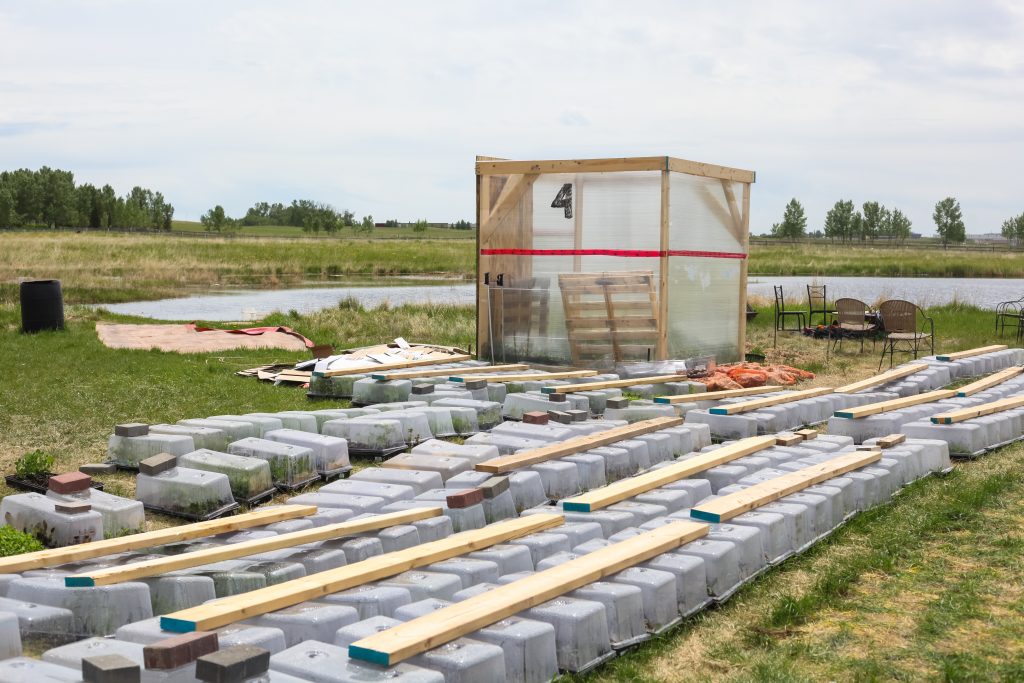
She continued, “We also really promote a rearticulation, feminization of agriculture. What you find, especially in a lot of large-scale mechanized agriculture, is that a lot of women are partaking in both productive and reproductive forms of agricultural labour without often making much of the decisions. Grow Calgary, although we don’t have a platform for feminism, it’s woven into our administrative structure and the majority of our management board are females […] we’re out there on the farm, but we’re also helping make decisions.”
Grow Calgary is entirely volunteer-run, and welcomes over 10,000 volunteers throughout the year to their farms. Klinke said they have had over 100 volunteers in the past month since settling into their new location, with about 10-15 volunteers a day. There are opportunities beyond volunteering too, such as a newly introduced program: the opportunity to receive a Small Scale Agricultural Farm Management certificate, the first step in a multi-level program soon to be rolled out. The program is free, open to all ages, with flexible hours, and allows for the volunteers to learn about all aspects of urban agriculture, from irrigation to seeding to harvesting.
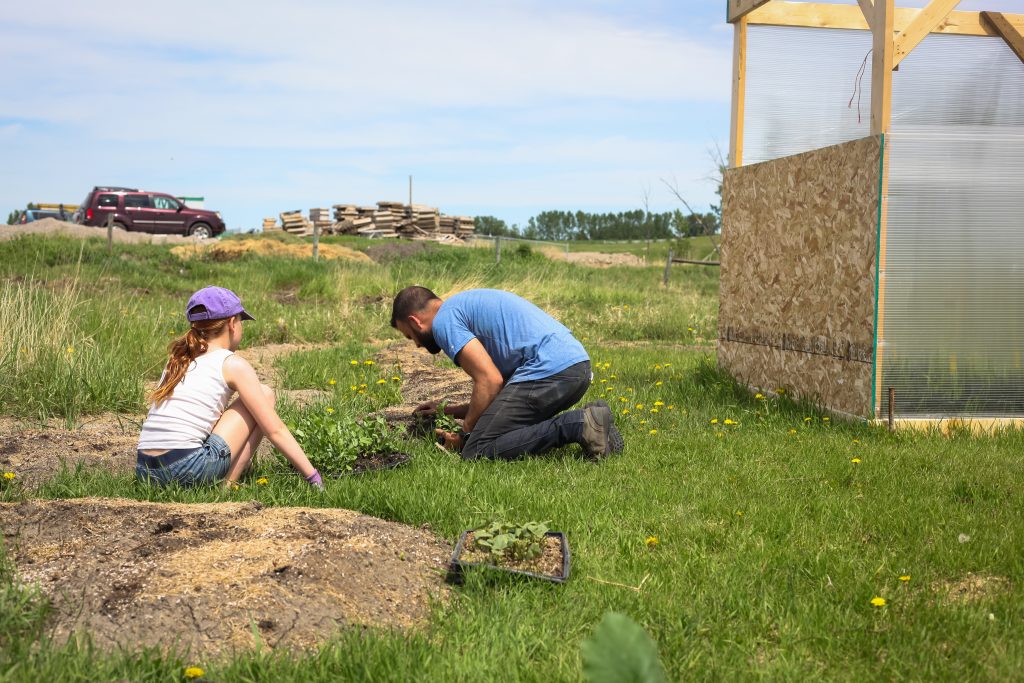
Since COVID hit, Grow Calgary has been making efforts to ensure the safety of their farming volunteers, including carpooling regulations, masks and gloves and keeping within the maximum number of people outdoors as well.
“If you want to work from home though […] we have actually grown our volunteer coordinator management base from just one person at the end of April to now having over 35,” Klinke said, working on social media platforms, sending out press releases and newsletters, building videography and photography portfolios, graphic designing, info-tech students and more.
“If you are a student at the University of Calgary and you’re interested in developing any particular skill, we welcome you onboard to develop that technical or interpersonal skill.”
To learn more or get involved with Grow Calgary, check out their volunteer links on their website.

